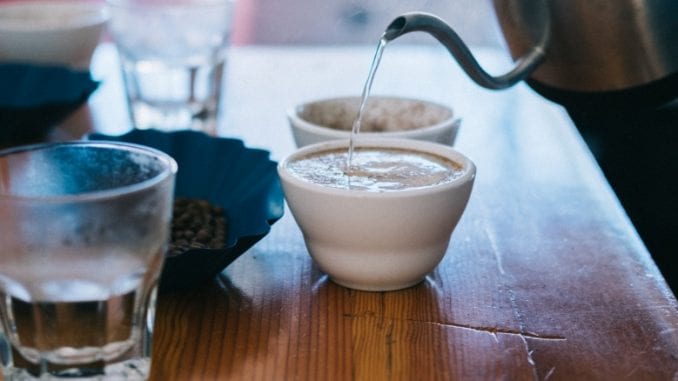
With coffees from Ethiopia dominating the 2018 GFA nominations, some of the finalist roasters share their thoughts on how they chose their coffees.
BY CHRIS RYAN
BARISTA MAGAZINE ONLINE
Cover photo courtesy of Compelling Coffee
Earlier this month, the San Francisco-based Good Food Foundation announced the finalists for the 15 categories of the 2017 Good Food Awards. The coffee category recognized 27 roasters from across the United States; in all categories, the awards sought to honor “the qualities we love most about this country: our rich cultural diversity, vibrant agricultural landscape, and the creativity and integrity of its small business owners,” according to a press release from the Good Food Awards. The winners will be announced January 19, 2018, in San Francisco.
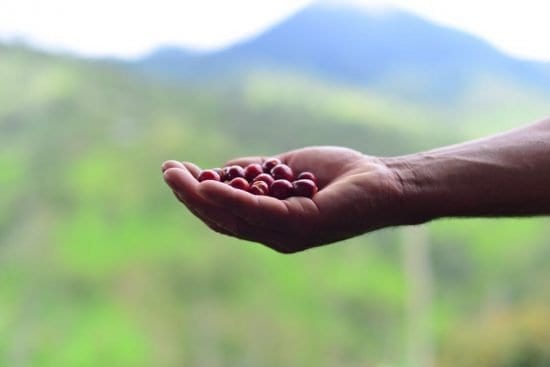
Perhaps most noteworthy about the finalists in the coffee category was the domination of coffees from Ethiopia, with 26 of the 27 finalist roasters submitting coffees from the East African nation. Among the reasons for the high number of nominated Ethiopians include those coffees being in season when submissions were due, as well as many Ethiopian coffee qualifying under the coffee criteria for the Good Food Awards. (The standards require certification through specific programs but do not include direct-trade coffees.)
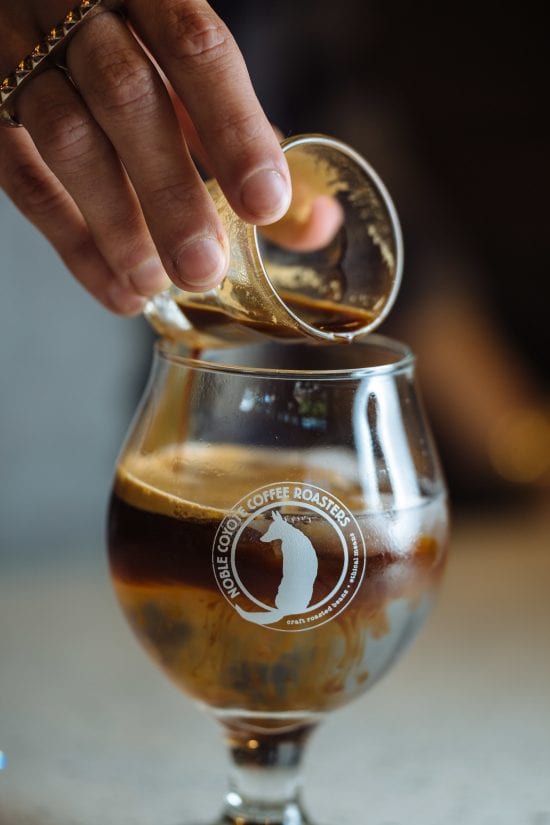
One of the finalist roasters, Los Angeles’ Compelling Coffee, determined which coffee to enter by following the Good Food Awards’ brewing methodology and doing tastings to see how its potential coffees performed, In the end, the Banko Gotiti from Ethiopia won out. “We went with an Ethiopian coffee only because it was (narrowly) the tastiest coffee we evaluated within the GFA’s parameters,” says Compelling Coffee’s owner, Kian Abedini. “It didn’t necessarily have to do with the origin. Our thought process was quality first, trend second.
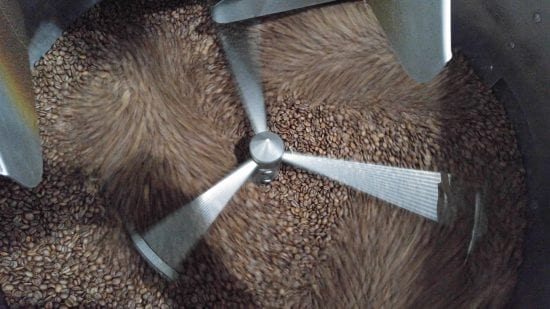
Another finalist, Dallas-based Noble Coyote Coffee Roasters, evaluated several coffees in-house before deciding to submit two Ethiopian Guji coffees from the Kayon Mountain Farm—one washed, one natural. “We thought it would be really cool to have two coffees from the same place—same harvest, different processing,” says Noble Coyote co-owner Marta Sprague. “Ultimately, the natural process moved forward, probably because it’s so fruity and creamy, and naturals tend to last a little longer after roasting.”
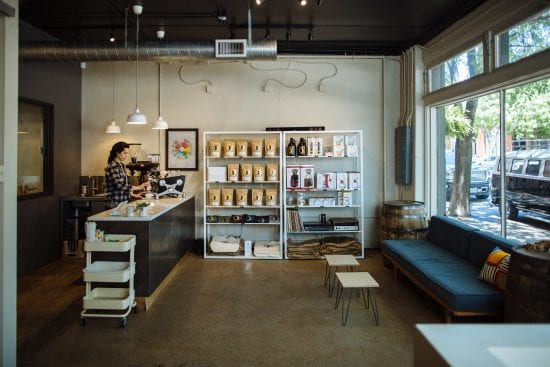
Marta adds that this was Noble Coyote’s first time submitting coffees for the Good Food Awards, and they were gratified by the honor. “We have great respect for the other roasters on the list, and to be in their company is quite an honor,” she says. “To be a Good Food Awards finalist is validating for us in that it says to us, yes, what you’ve been working on, what you’ve been striving for, you’re on the right path.”
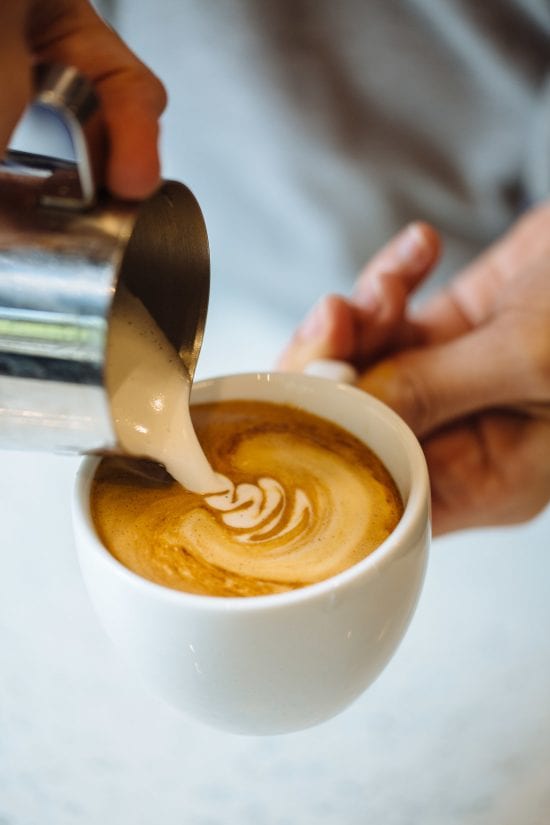
While Ethiopians dominated the finalist nominations, there was one coffee that hailed from a different part of the world: Metric Coffee’s El Willay, produced by Dionisio Pintado from Peru’s Alto Huamaca-San Ignacio region. Xavier Alexander, Metric’s owner, says the coffee has “a lovely floral aroma with notes of citrus blossom, plum, nectarines, and orange blossom.” He adds that Metric found the coffee through their employee Jose Rivera, who has worked as a coffee farmer in Peru. “Jose exposed us to his work back in Peru and shared some of the most beautiful coffees I have ever tried from Peru, much less anywhere,” Xavier says. “Through Jose, we began to see and taste the quality of the coffees that are coming out of this part of the world.”
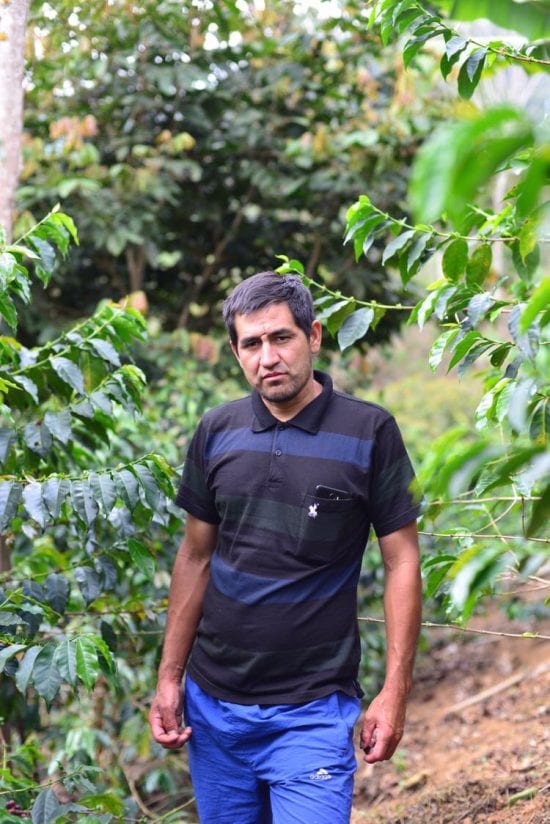
The Good Food Awards will be announced on Friday, January 19, at a gala in the San Francisco War Memorial, followed by two days of Good Food Awards events. For more information on the festivities, visit the website here.
Here’s the complete list of nominees in the coffee category:
Andytown Coffee Roasters, Ethiopia Idido, California
Backyard Beans Coffee Company, Ethiopia Yirgacheffe Konga, Pennsylvania
Big Creek Coffee Roasters, Ethiopia Gedeb, Montana
Black Oak Coffee Roasters, Ethiopia Hambela Alaka, California
Blueprint Coffee, Ethiopia Hambela, Missouri
Caffe Ladro, Ethiopia Hambela Kirite Organic, Washington
Compelling Coffee, Ethiopia Banko Gotiti Coffee, California
Flight Coffee Co., Ethiopia Amaro Gayo, New Hampshire
Huckleberry Roasters, Ethiopia Sidama Ardi, Colorado
Intelligentsia Coffee & Tea, Organic Ethiopia Tikur Anbessa, California
JBC Coffee Roasters, Gedeb Lot 83 Ethiopia Natural, Wisconsin
Metric Coffee Company, El Willay, Illinois
Mudhouse Coffee Roasters, Limu Dabesa, Ethiopia, Virginia
Noble Coffee Roasting, Ethiopian ‘Bishan Fugu,’ Oregon
Noble Coyote Coffee Roasters, Ethiopian Guji – Organic – Natural Process, Texas
Onyx Coffee Lab, Ethiopian Buku, Arkansas
OQ Coffee Co., Kayon Mountain Estate, Ethiopia, New Jersey
Ozo Coffee Roasters, Ethiopia Hambela Kirite, Colorado
Pachamama Coffee Cooperative, Organic Ethiopia Kossa Geshe & Organic Ethiopia Natural Amaro, California
Per’La Specialty Roasters, Ethiopia Shakiso, Florida
Radio Roasters Coffee, Ethiopia Organic Guji Shakiso, Georgia
Revel Coffee, Ethiopia Kayon Mountain Guji Dry, Montana
Royal Mile Coffee, Ethiopia Shakiso Mormora Farm, New Jersey
Square One Coffee, Ethiopia Shakiso Mormora, Pennsylvania
Tico Coffee Roasters, Ethiopia Gotiti, California
Topeca Coffee Roasters, Ethiopia Ardi, Oklahoma
Vashon Coffee Company, Ethiopia Yirgacheffe Natural Daniel Miju, Washington

